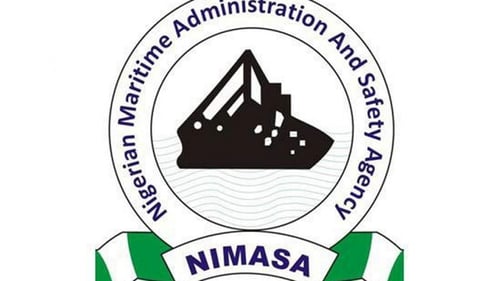The Nigerian Navy has raised alarm on the potential conflict over the planned expansion of the mandate of the Nigerian Maritime Administration and Safety Agency (NIMASA) to include the security of maritime.
It said NIMASA should limit its mandate to safety and administration on waterways and not get involved in maritime security matters.
Chief of Training and Operations, Nigerian Navy, Solomon Agada, said this during the public hearing on some bills on maritime organised by the House Committee on Maritime and Safety.

The bills are the Merchant Shipping Act (Repeal & Enactment) Bill 2021 (HB.1602) and the Nigerian Maritime Administration and Safety Agency Act (Repeal and Enactment) Bill 2021 (HB.1476). Others are Coastal and Inland Shipping (Cabotage) (Amendment) Bill 2020 (HB.77 8), the Maritime Development Bank of Nigeria (Establishment) Bill (2022) (HB.531) and the Nigerian Maritime Administration and Safety Agency Act (Amendment) Bill 2021 (HB. 1471).
In his presentation, Agada, who represented Chief of Naval Staff Awwal Gambo, said security should be removed from the Nigerian Maritime Administration and Safety Agency Act (Amendment) Bill 2021, allowing the agency to focus on safety.
“The Nigerian Navy over time observed that NIMASA has a huge provision in its Act to expand its mandate beyond maritime administration and safety to the realm of maritime security. This conflicting trend also exists in the draft bill 2021. It is against this background that the Nigerian Navy makes these observations:
“The word security was used without conceptual clarification. It is essential that the word security be replaced with administration in the preamble of the bill and subsequent sections.
“This is necessary to ensure NIMASA focuses on core mandate of regulatory safety agency in order to avoid conflict with the Nigerian Navy constitutional responsibility of maritime security of the nation,” Agada said.
In his submission, Minister of Transportation, Rotimi Amaechi, represented by the Director, Legal Services of the Federal Ministry of Transportation, Paul Oteh, expressed reservation about the allocation of 12% of NIMASA’s revenue to fund the Nigerian Maritime University located in Okerenkoko, Delta State.
“The ministry does not support 12% of NIMASA revenue going to the university. The proposal, in our view, also does not recognise the fact that the university, like other public institutions under the supervision of the NUC and the Federal Ministry of Education, is ordinarily entitled to public funds as may be appropriated by the National Assembly on an annual basis,” he said.
Speaking earlier while declaring the hearing open, the Speaker of the House, Femi Gbajabiamila, warned against over-regulating the maritime sector.
“I have long believed and expressed that the primary role of government as it relates to private industry is to facilitate the conditions that allow private capital to thrive through investment and innovation.
“In performing this role, we must be wary of over-regulation. We must be careful not to over-legislate in ways that become inimical to our objectives of advancing the growth and prosperity of the industry,” he said.
Earlier, the Chairman of the committee, Linda Ikpeazu, said the hearing was to deliberate on critical maritime sector bills referred to the committee by the House in plenary.
“Not only are we focused on making the maritime sector a key alternative source of revenue and economic growth to our dwindling oil resources, we are also poised to develop a prosperous blue economy for our nation, akin to similar successes in other maritime nations around the world.”
Source: Ships and Ports





